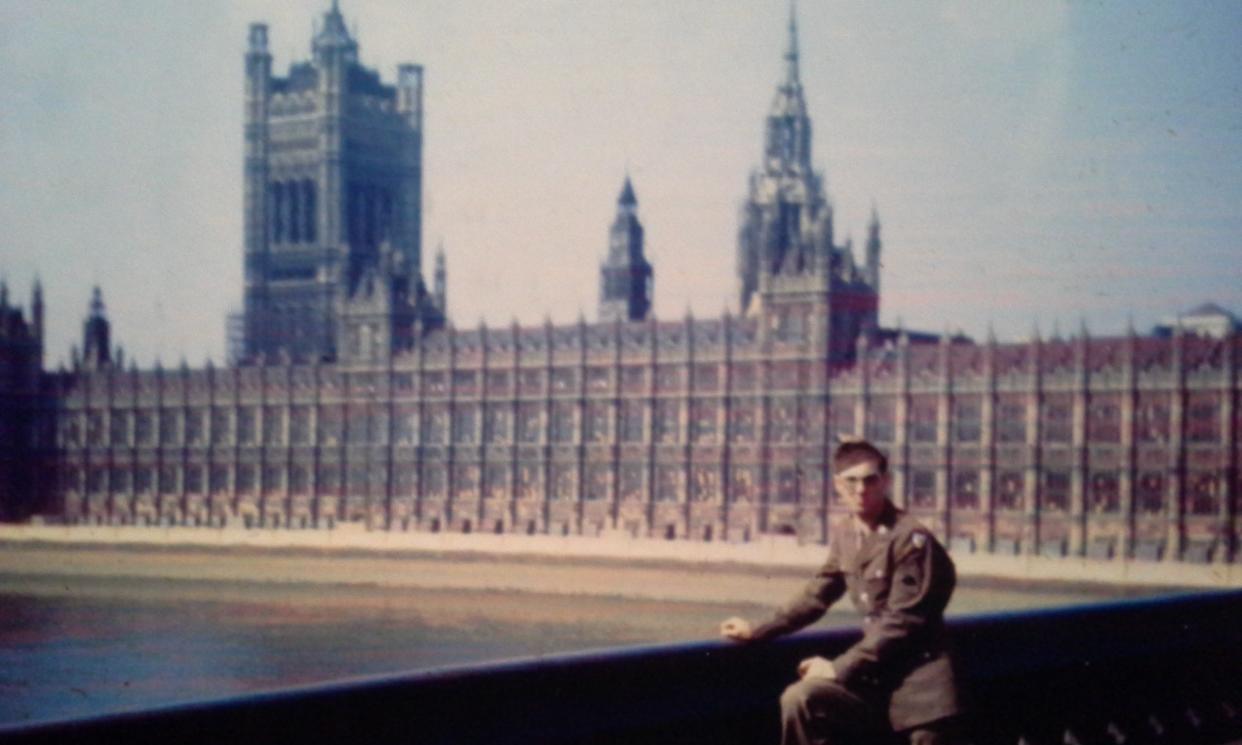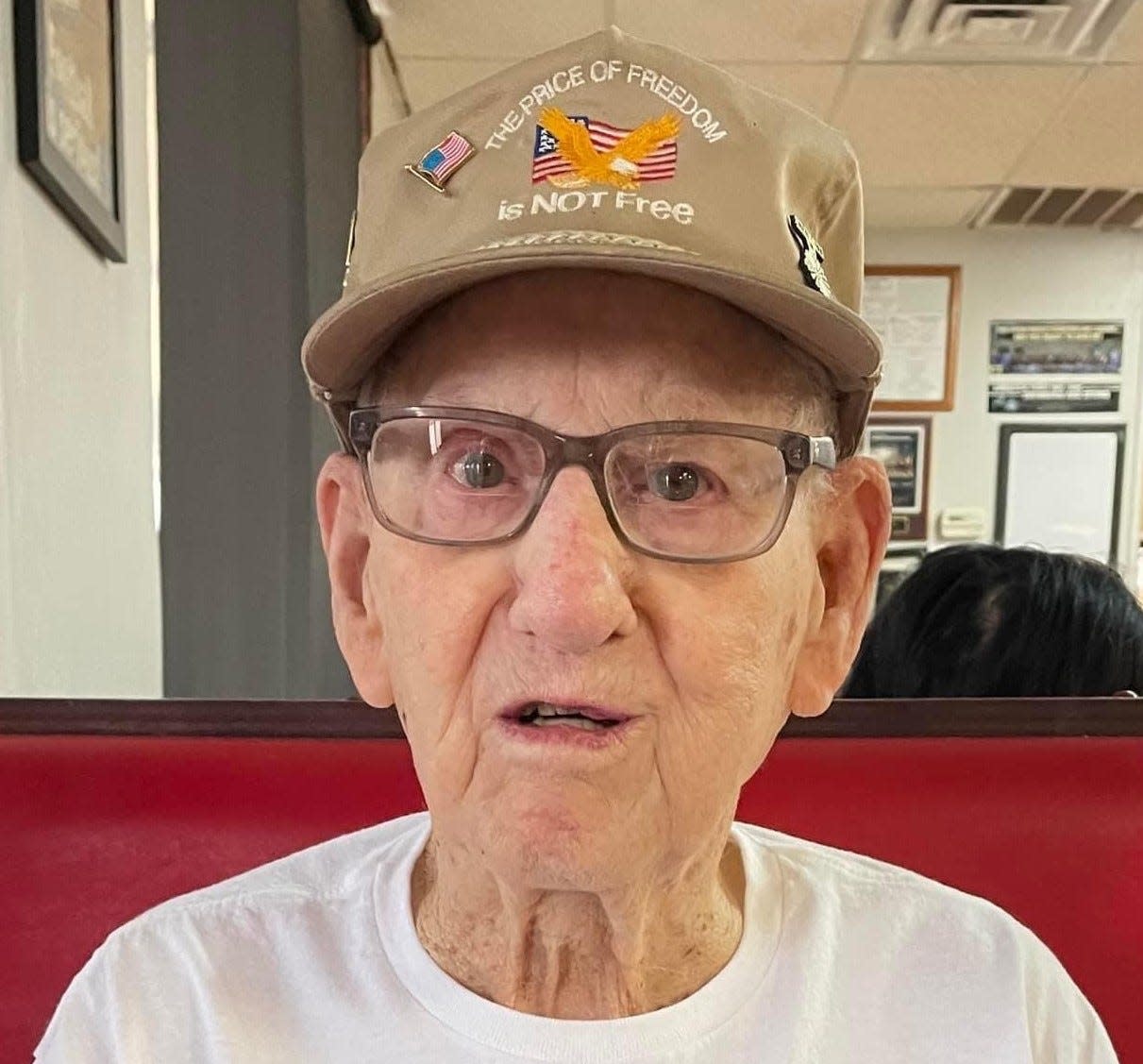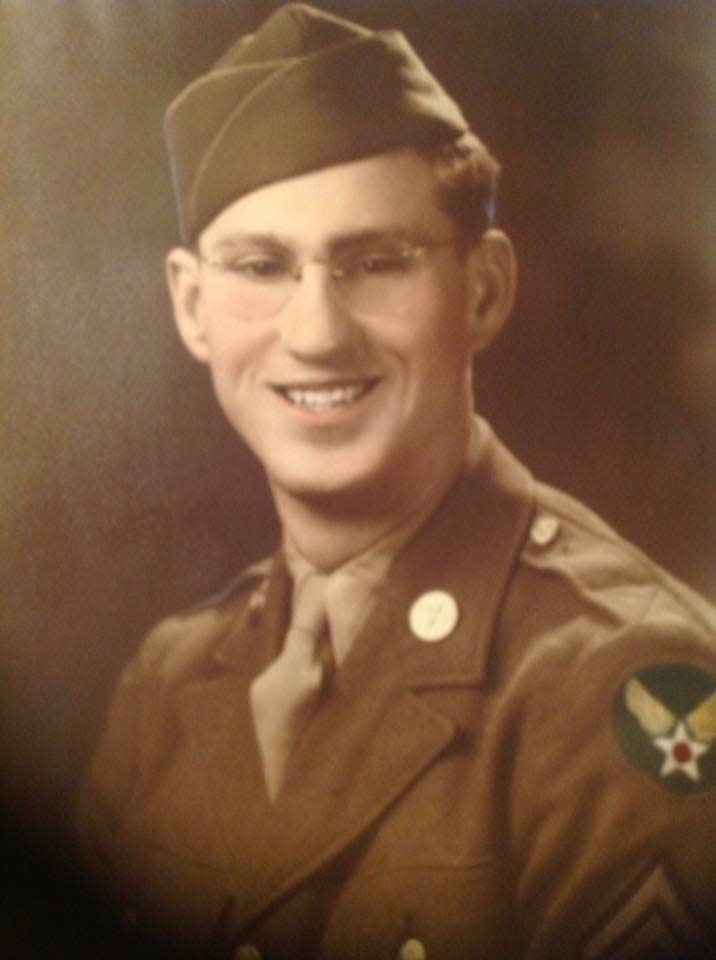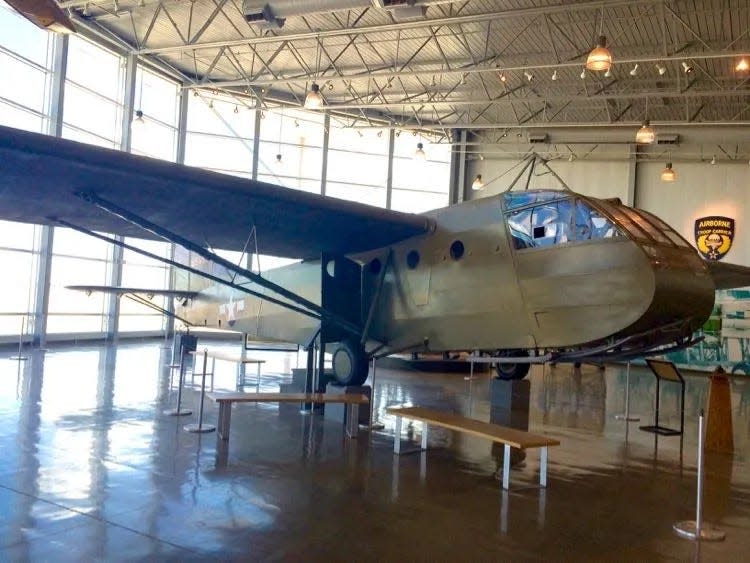Stories of service: Lubbock man helped with glider recovery during WWII
(Editor's note: Lubbock resident Justin T. Jones died Nov. 4 died at 102 years old. Larry A. Williams, a frequent Avalanche-Journal veterans history writer, interviewed him back in March 2018 about his service during World War II. Jones also went on the inaugural 2012 South Plains Honor Flight after “being signed up by his daughters.” He said his favorite memorial was the WWII memorial because “that’s ours." This is his story of service.)

Capt. Joseph DeDera received his orders from his commander, Col. Albert Price in late September 1944 in Aldermaston, England. His mission – recover gliders used in the invasion of Holland. Just days before, the 1st Allied Airborne invaded Holland in an effort to seize the bridges over the Rhine and make an end run around the Siegfried Line. It didn’t work. The Nazis were prepared for the move, and the Allies were stopped just short of the Rhine. The Holland landings were successful, however, and several cities were liberated. Lubbock resident Justin T. Jones took part in the glider recovery effort. A little known but critical mission during WWII, it was a highly dangerous assignment.
Jones was born in 1921 to Clyde and Dora Jones. His father was a farmer and his “mother and grandmother ran the whole family.” During his rare time off, he “loved fishing with a willow pole, using grasshoppers as bait.” He graduated from Byers High School in 1938. He moved to Lubbock, planning to attend Texas Tech, but said he “found out how much money I didn’t have!” Instead, he landed a job at Coca-Cola. On Dec. 7, 1941, the attack on Pearl Harbor stunned all of America. Justin saw an ad in the Avalanche-Journal to join up for the Lubbock Army Flying School. He and 152 West Texas men signed up on December 12, 1941. The men were sent to Ft. Sill, Oklahoma to get shots and uniforms. Then it was back to the Lubbock Airfield. There were only 39 enlisted men and three officers stationed there when they arrived.

After very little training, they were on the flight line working with PT-19 trainers. After two months, they moved up to AT-6’s then AT-9’s and finally AT-11’s. Justin was unable to make cadet because of poor eyesight. His next stop was Will Rogers Field in Oklahoma City, where the 458th Air Service Squadron was formed. The squadron was reorganized at Barksdale Army Airfield and sent to Ft. Dix, New Jersey, shipping out on a troop carrier to Liverpool, England. The squadron had been at Aldermaston, England for several months when they were ordered on the glider mission to Holland. On October 2, 1944, 151 mechanics and four officers were airlifted to Eindhoven, Holland with “all they could stack into 20 C-47 aircraft, including jeeps and trailers”, Justin recalled.
The retrieval zone was called the LZ-W at Zon, Holland. There were hundreds (707 to be exact) of CG-4A gliders scattered all over the countryside. The three detachments on the field soon realized that Zon was a hot zone, where British and German artillery units were shelling back and forth. The men did not get much sleep here as the shelling could commence at any time. The work was tedious, and many gliders had been damaged. The gliders were made by three different manufacturers, and some of the parts were not interchangeable, complicating the mission. The men also had to watch out for land mines left by the Germans. Some of the gliders themselves were even booby-trapped. The gliders were taken back to an air strip, repaired and picked up by transport; some were even picked up by a tow rope that would “snatch the glider off the ground”.
The next retrieval zone had 60 gliders. At this location, the squadrons were bombarded by German 88-millimeter artillery. One airman was killed by a direct hit, and three were wounded. The V-1 and V-2 rockets launched by the Germans were visible from their bivouac area. The Battle of the Bulge was about to begin, and the men could also see British Spitfires and German FW-190’s dogfighting at tree level.

Early in January 1945, their mission completed, they returned to Reims, France where the squadron was deactivated; it was in Reims where German Marshall Alfred Jodl signed the German surrender on May 7, 1945. On March 24, 1945, 906 reconstituted CG-4a gliders joined the Allied air armada and descended into Wesel, Germany, and “helped deliver hundreds of fighting men and air power due to the ingenuity, resourcefulness and hard labor of aircraft mechanics in Holland several months before.”
Returning to the U.S. from Le Havre, France, Justin was discharged at Ft. Sam Houston on October 19, 1945. He was awarded numerous medals for his service, including the Bronze Star. Returning to Lubbock, he went back to Coca Cola and worked as a manager for several years. He met and married Winona Cawthorn in 1948. They had four daughters, four grandchildren and seven great-grandchildren. After leaving Coca Cola, Justin bought a Curtis Candy franchise, then a Borden’s Distributorship in Levelland, where he spent 17 years.
Gliders played a significant role in the war. Troops dropped by parachute risked being scattered over vast areas, while gliders could land hundreds of infantry with a much greater degree of precision." Because they were quiet, hey also afforded a better chance of surprise...often landing undetected. More than 5,000 glider pilots were trained by the United States military alone in WWII. The aircrews suffered casualty rates exceeding 30 percent. Most of these aviators were trained in Lubbock, Texas. Today, the city is home to the Silent Wings Museum, which is dedicated to preserving the memory of these brave fliers."
Justin Jones' role in glider retrieval helped fill the skies with American air power, helping the Allies secure victory in Europe and earning his place in The Greatest Generation.

Larry A. Williams is the veterans liaison co-chair for the Texas South Plains Honor Flight and co-author of "Texas South Plains War Stories.
This article originally appeared on Lubbock Avalanche-Journal: Stories of service: Lubbock man helped with glider recovery during WWII
